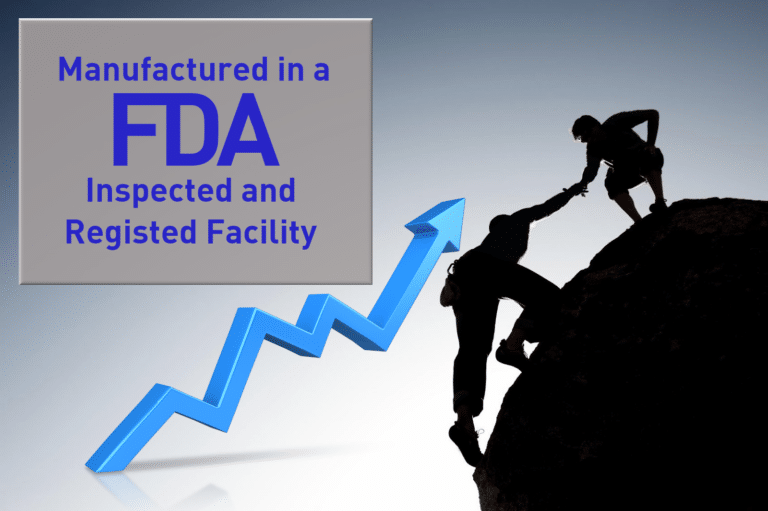The origins of the FDA (U.S. Food and Drug Administration) can be traced back to the late 19th and early 20th centuries when concerns over the safety and quality of food and drugs began to emerge. Prior to the establishment of the FDA, there were limited regulations in place to ensure the safety and efficacy of these products.
The FDA plays a crucial role in helping food businesses ensure the safety and quality of their products. Here are some ways in which the FDA assists food businesses:
- Food Safety Standards: The FDA establishes and enforces regulations and standards to ensure the safety of food products. They provide guidelines on good manufacturing practices (GMPs) that businesses must follow to maintain proper hygiene, sanitation, and handling of food.
- Inspections and Compliance: The FDA conducts regular inspections of food facilities to assess compliance with safety regulations. These inspections help identify any potential hazards, such as improper storage, contamination risks, or inadequate labeling. By ensuring compliance, the FDA helps businesses maintain high standards and prevent issues that could harm consumers.
- Labeling and Ingredient Regulations: The FDA sets requirements for food labeling, including accurate ingredient lists, nutrition information, allergen warnings, and proper claims. These regulations help food businesses provide transparent and reliable information to consumers, allowing them to make informed choices about the products they purchase.
- Guidance and Education: The FDA offers guidance and educational resources to help food businesses understand and comply with regulations. This includes information on topics such as proper handling of specific food types, preventing cross-contamination, and addressing foodborne illness outbreaks. By promoting best practices, the FDA helps businesses improve their operations and reduce the risk of foodborne illnesses.
- Recall Management: In the event of a food safety issue, the FDA works closely with food businesses to manage product recalls effectively. They provide guidance on identifying and removing affected products from the market, minimizing the impact on public health and the reputation of the business.
- Research and Innovation Support: The FDA conducts research and collaborates with food businesses to advance food safety technologies, methods, and practices. They support innovation by providing resources and expertise to help businesses develop new products or processes while ensuring safety and compliance.
- International Standards and Imports: The FDA collaborates with international regulatory bodies to establish harmonized food safety standards. They inspect and monitor imported food products to ensure they meet U.S. safety requirements, promoting fair trade practices and protecting consumers from potentially unsafe products.
- Guidance on New Product Development: The FDA provides guidance to food businesses during the development of new products or ingredients. They offer expertise on safety assessments, ingredient approvals, and labeling requirements, helping businesses navigate the regulatory landscape and bring innovative food products to market.
- Training and Certification: The FDA offers training programs and certification opportunities for food industry professionals. These programs cover various topics such as food safety, Hazard Analysis and Critical Control Points (HACCP), and preventive controls. By enhancing knowledge and skills, the FDA helps businesses improve their practices and ensure compliance with regulations.
- Collaboration and Partnerships: The FDA collaborates with industry associations, academia, and other stakeholders to foster cooperation and knowledge sharing. They participate in conferences, workshops, and research initiatives, working together with food businesses to address emerging challenges and promote continuous improvement in food safety and quality.
- Rapid Response to Outbreaks and Emergencies: In the event of a foodborne illness outbreak or other emergencies, the FDA swiftly responds to investigate the cause, trace contaminated products, and take necessary actions to protect public health. They work closely with food businesses to mitigate risks and prevent further contamination, ensuring consumer safety and minimizing the impact on affected businesses.
- Streamlining Regulatory Processes: The FDA continually evaluates its regulatory processes to enhance efficiency and reduce the burden on food businesses. They aim to facilitate timely product approvals, inspections, and compliance activities, enabling businesses to bring their products to market faster while maintaining high safety standards.
- Consumer Complaint Handling: The FDA provides a platform for consumers to report complaints or concerns about food products. They investigate these complaints and take appropriate actions, which may include inspections, product sampling, or enforcement actions. This process helps identify potential issues in the food supply chain and enables the FDA to work with businesses to address them.
- Risk Communication: The FDA plays a vital role in communicating food safety alerts, recalls, and public health advisories to consumers. They provide timely and accurate information through various channels, including their website, social media, and public announcements. By keeping the public informed, the FDA helps businesses maintain transparency and regain consumer trust during any safety-related incidents.
Overall, the FDA serves as a regulatory partner to food businesses by providing guidance, education, and oversight. Through their efforts, they contribute to the safety, integrity, and innovation of the food industry, ultimately benefiting both businesses and consumers.


